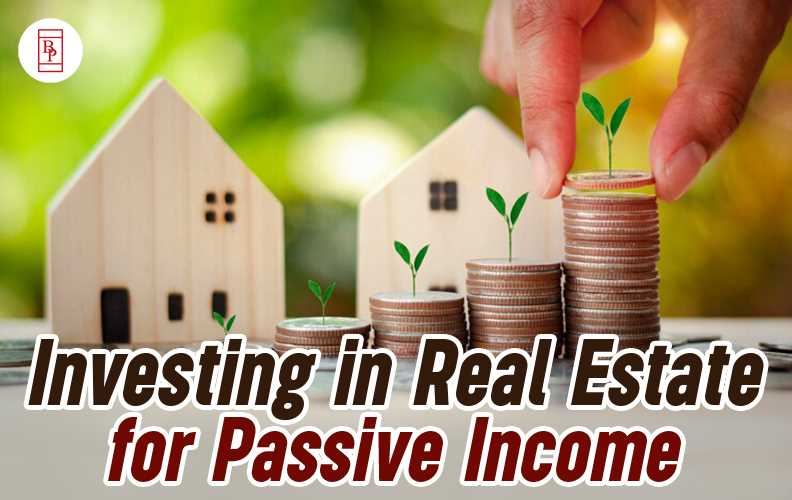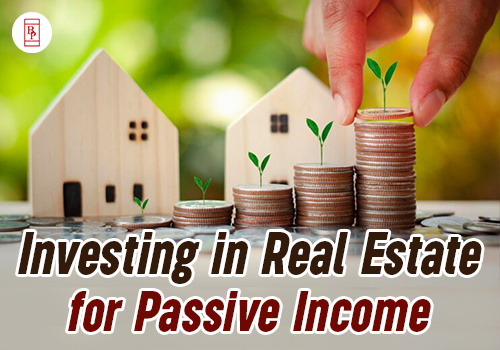 Real estate and investing in Real Estate has long been a cornerstone of wealth building, offering the potential for steady returns and long-term appreciation. But for many, the idea of becoming a landlord – finding tenants, dealing with repairs, and managing properties – can be daunting. This is where the concept of passive real estate income comes in.
Real estate and investing in Real Estate has long been a cornerstone of wealth building, offering the potential for steady returns and long-term appreciation. But for many, the idea of becoming a landlord – finding tenants, dealing with repairs, and managing properties – can be daunting. This is where the concept of passive real estate income comes in.Passive income, in this context, refers to earning returns from real estate investments without being directly involved in the day-to-day operations. There are several ways to achieve this, each with its own advantages and considerations.
Rental Properties:
While traditional rentals might not be entirely passive, they can be structured to minimize your workload. Here's how:- Single-family homes: This is a classic option, offering stable rental income. However, managing a single property can be time-consuming. Think about engaging a property management firm to oversee the screening of tenants, collection of rent, and resolution of maintenance matters.
- Multi-unit properties: Owning a duplex, triplex, or even a small apartment building can provide multiple income streams and potentially higher returns. However, the management complexity increases proportionally. Here too, property management can be a lifesaver.
Beyond Housing: Commercial Real Estate
The scope of the Investing in Real Estate and real estate market extends beyond just homes and apartments. Commercial real estate, encompassing office buildings, retail spaces, warehouses, and industrial facilities, can offer opportunities for passive income. Here are some ways to invest:- Direct ownership: Purchasing a commercial property offers the potential for high rental yields and long-term value appreciation. However, the initial investment can be significant, and the due diligence process is often complex. Partnering with experienced investors can mitigate risk.
- Real Estate Investment Trusts (REITs): REITs are companies that own, operate, and finance income-generating real estate. By investing in a REIT, you gain exposure to a diversified portfolio of properties without the hassle of direct ownership. REITs are publicly traded on stock exchanges, making them a liquid investment.
Choosing the Right Path
The ideal approach to passive real estate income depends on your risk tolerance, investment capital, and desired level of involvement. Here are some factors to consider:- Liquidity: Direct property ownership offers less liquidity than REITs. Selling a property can take time, while REIT shares can be readily bought and sold on the stock market.
- Upfront Investment: Direct property ownership requires a significant down payment and ongoing maintenance costs. REITs allow you to invest in smaller sums.
- Management Involvement: Hiring a property management company can significantly reduce your workload but adds an extra expense. REITs offer a completely hands-off approach.
The Real Estate Market Outlook
While past performance is not a guarantee of future results, understanding the current state of the real estate market can be helpful. The housing market has seen strong growth in recent years, but some experts predict a potential slowdown. The commercial real estate sector is also evolving, with trends like remote work impacting office space demand for example, at Medina WA Real Estate. It's crucial to conduct thorough research and consider seeking professional advice before making any investment decisions.Conclusion
As Seattle Real Estate concluded Investing in real estate for passive income can be a powerful wealth-building strategy. By understanding the different options available and carefully considering your circumstances, you can choose an approach that aligns with your goals and risk tolerance. Remember, real estate is a long-term investment, and with careful planning, it can provide a steady stream of income for years to come.
Categories:
Market Update
We would like to hear from you! If you have any questions, please do not hesitate to contact us. We are always looking forward to hearing from you! We will do our best to reply to you within 24 hours !

